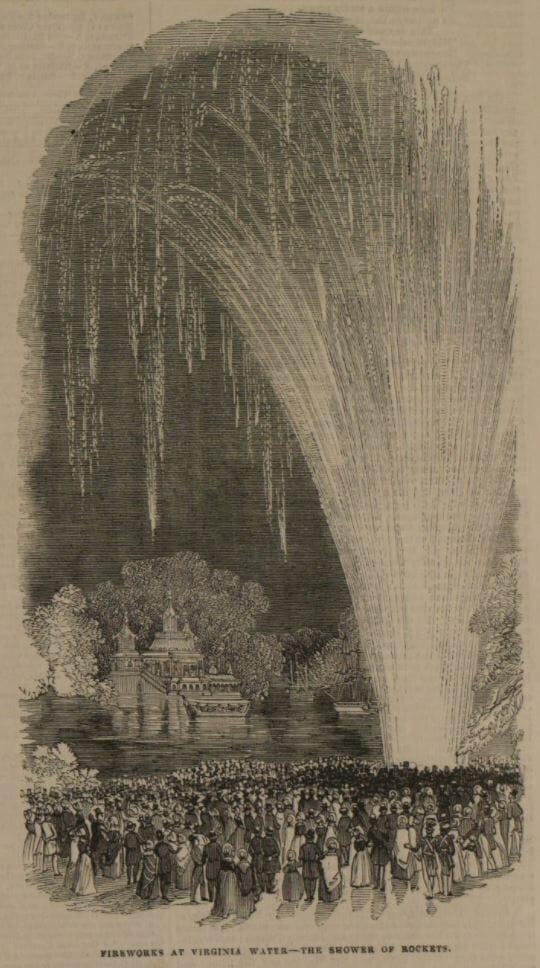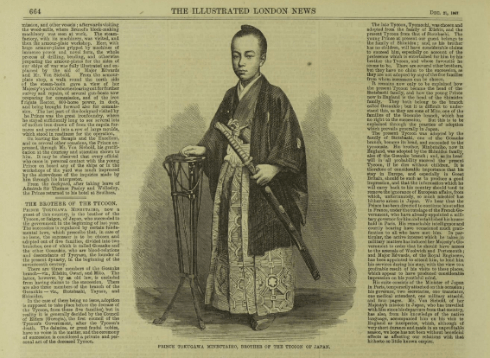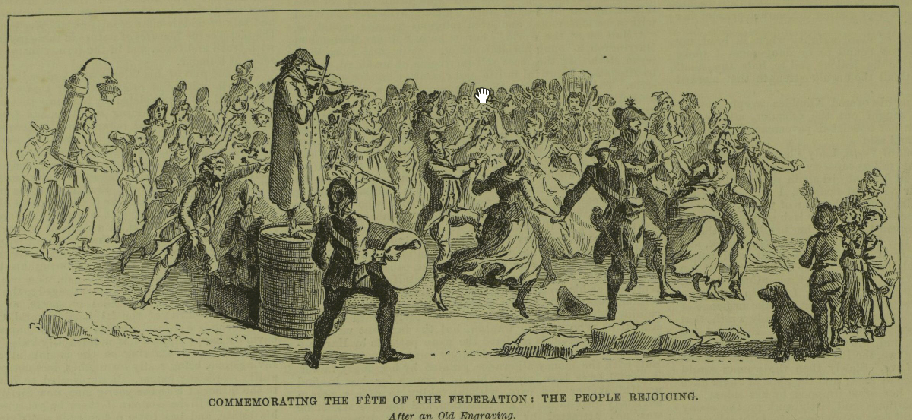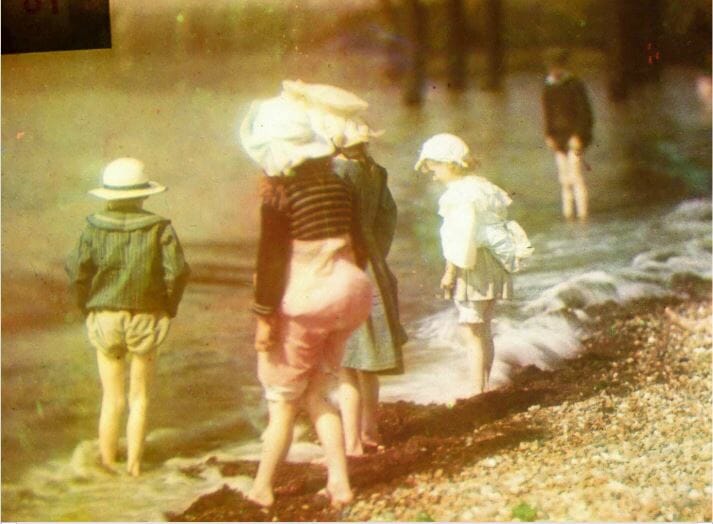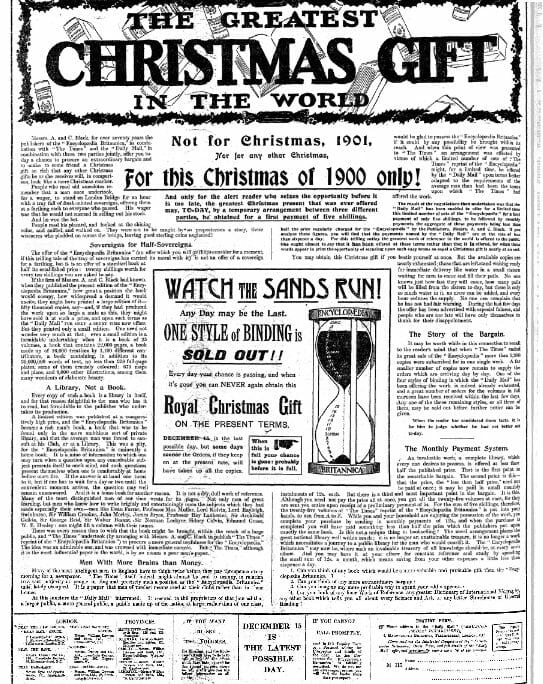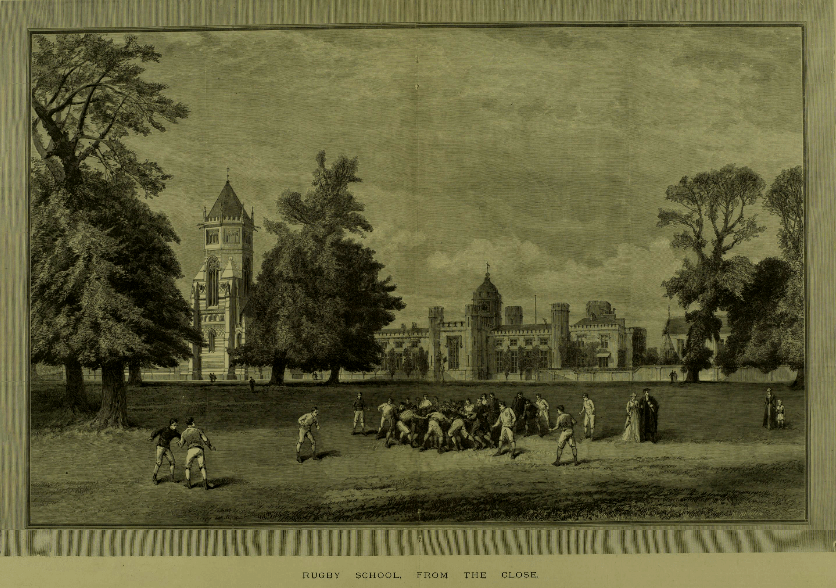In the UK today, we associate fireworks with the fifth of November and (as the well-known nursery rhyme goes…) gunpowder, treason and plot. For many of us, fireworks are inextricably bound up with the smell of bonfire smoke, and standing in a park or sports ground, ankle deep in mud, waiting for the audio system to work. This is often combined with the unfettered glee of riding a fairground ride that appears never to have been safety tested! And of course, we all know and love the various fireworks themselves: the rockets, Roman Candles, Catherine Wheels, Golden Rain and sparklers. Perhaps your personal favourites are those that burst in gold, and then fizz silver? Maybe those that screech and scream? Or those that launch in a splendid spray of red and blue and then ‘phut’ into nothingness? Or the slow burner… refusing to go off until someone has cautiously poked it with a stick, whilst the others watch terrified that it should explode in the face of the poker… Firework night: a time of education and entertainment for all!
Illustrated London News
The Paris International Exposition of 1867
In the December 21, 1867 issue of the Illustrated London News there appears a striking full-length portrait of a samurai. He is neatly dressed in formal kimono, his left hand holding a sword and his right hand resting on a stool, calmly gazing towards the viewer. Something is odd about this picture, however: the sword looks too large for his body, his forehead too high, and his entire stature seems rather diminutive, even for a Japanese.
“Hurrah for the red, white and blue”
14th July is the day of “fête nationale” in France, or “Bastille Day” as it is known in English, falling on the anniversary of the storming of the Bastille prison on 14th July 1789, in the early days of the French Revolution. It is a day of popular celebrations, grand military parade and lavish fireworks. Contrary to the 4th of July, the American Independence Day celebrating events of 1776, the 14th July was slow to establish itself firmly as a date of national celebrations in France. The chequered history of this holiday can been traced in Gale’s rich newspapers archives.
“The Great Binge”
by Seth Cayley
Can cocaine really cure sea-sickness? Something tells me that very little peer-reviewed research has been done on the subject in recent years. But that didn’t stop the Victorians. From around 1870-1915 a large number of narcotics, including heroin, were widely and legally available, and often packaged as medicines. Historians have dubbed this period before the first international drug control treaties as “The Great Binge”.
Holidaying in the 19th Century? Here’s what you need to know
Sunshine has finally reached the UK! As we break out the BBQs and look forward to our summer holidays, I thought it would be fun to use The Illustrated London News Archive and Gale Artemis: Primary Sources to look back 100 years, and see what holidayers back then had to look forward to…
The Commercialisation of Christmas
Undoubtedly, many still appreciate and celebrate the deeply religious roots of Christmas, yet it has also become a commercialised event in many countries today. From mid-November, high-streets are packed with snowflake window stickers, festive deals and cheery Christmas music to entice shoppers into an economically indulgent mood. Yet, despite the general consensus and participation in commercialising Christmas, this is often assumed to be a new phenomenon, part of today’s world. ‘Born to Buy’, an article in Gale’s Academic OneFile, offers an example of such sentiments;
The ‘Father of Rugby Football?’ William Webb Ellis and the Rugby World Cup
The sight of hordes of excited, expectant people checking in to Britain’s hotels this month can mean only one thing – not the lure of a discounted late-summer trip to the seaside – but the start of the eighth Rugby Union World Cup. The beginning of the event on 18th September marked the second time that the UK has hosted the competition. Public interest is reaching fever pitch as we sit glued to our TVs, agonisingly hoping for another Jonny Wilkinson-inspired moment. The victorious nation will crown their achievement by lifting the William Webb Ellis Cup at Twickenham on 31 October. But just who was William Webb Ellis?
With access to millions of pages of digital archival material here at Gale, a part of Cengage Learning, I decided to dig a little deeper into the legend which surrounds the man…

